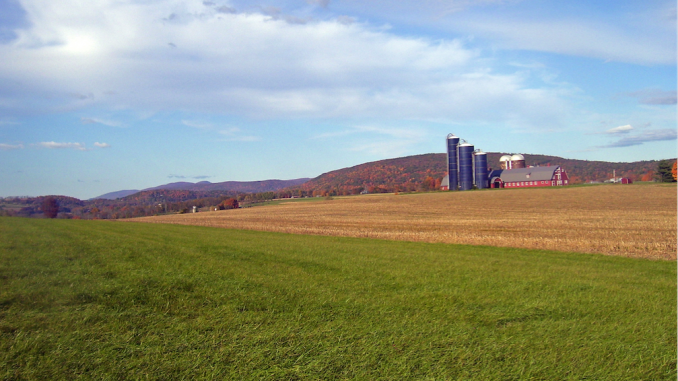
Gov. Andrew Cuomo recently vetoed a bill that would give a tax credit to farmers in New York who donate their excess produce to food banks. As a financial incentive, this bill would offset the costs that farmers must pay when packaging and transporting food they make no profit off of.
The bill originated with the New York Farm Bureau (NYFB), an organization that works closely with the food banks of New York. The bill would give $5,000 in tax credit to small farms who donate. Cuomo veto-messaged on grounds that the piece of legislation’s creation is outside of the budget, and his concerns that the state’s finances would be hurt. The New York budget is drawn up in January of each year and is not finalized until April of that same year.
As a tax cedit, the potential $100,000 of lost revenue that would go to donating farms would not affect the state until 2018. Passed in an unanimous bipartisan fashion by both State Assembly and Senate, this is the second consecutive year in which Cuomo had vetoed the bill.
Food banks are responsible for the distribution of food to public pantries, which are open to New Yorkers in need. Approximately 2.7 million New Yorkers rely on food stamps and welfare programs to feed their families.
Donated food is collected through the “Harvest for All” program, a nationwide annual farm donation partnership linking NYFB and Feeding America in each state, according to the NYFB. There are 10 Feeding America food banks throughout the state.
Surplus food is qualified by its lack of candidacy to be sold in commercial markets. These excess crops are considered to be the “ugly food” of the harvest— fruits and veggies with unsightly bumps and bruises. Despite their appearance, these crops are just as nutritious and valuable as their attractive counterparts.
According to Manager of Public Affairs for the NYFB Steve Ammerman, after Cuomo’s initial rejection of the bill in 2015, the bureau had since worked to address his concerns that he expressed.
“This year we were pretty confident that those concerns were addressed,” Ammerman said. “We certainly don’t see his message valid or reasonable—this veto is carbon copy of the one he sent last year. Since the bill was passed by the assembly and senate, there can’t be any glaring potential detriment to the state’s finances that would result from the bill’s implementation.”
On Tuesday, Dec. 6, NYFB members in conjunction with the Food Bank Association of New York State announced that nearly 11.4 million pounds of surplus fresh food and farm products have been donated by farmers this year through the month of November, according to the press release.
“The more produce that we take in, the more we distribute, and the more widespread benefit there is to public health,” said Carrie Jones Ross, food sourcing coordinator of the Hudson Valley Food Bank. “When you aren’t eating processed foods, the benefit is clear.”
Ross, who was present at the conference on Tuesday, said that giving New Yorkers in need access to healthful food should be the number one priority of lawmakers. The Hudson Valley Food Bank is deeply appreciative of farmers who regularly donate to them. With that sense of gratuity, Ross expressed her concern for donating farmers who are disappointed by Cuomo’s veto.
“The farms who donate to us already are a bit disheartened,” Ross said. “So to get additional farms to donate would be much easier if we were able to explain that there is a tax credit available to them.”
Former New Paltz Town Supervisor and current Bio Executive Director of Hunger Action of New York State Susan Zimet said she feels this would have been instrumental in encouraging more farms to donate their food. Zimet finds Cuomo’s argument against the bill to be redundant of his past veto, even though the NYFB worked to address the issues he took with it.
“It’s a waste of time as far as I’m concerned,” Zimet said. “He could have just signed it, figured out where the money will come from, and because it’s a tax credit the bill’s effect wouldn’t affect the budget until 2018.”
Zimet said legislation Cuomo has passed, such as raising minimum wage, is helpful to the state as a whole, but many small farms cannot afford to pay minimum wage to their workers which is why the 3,000 credit will be helpful to farmers.
“These farmers are the bread and butter of our state,” Zimet said. “Financially aiding private farms will help to sustain the business of local agriculture, an important aspect of New York.”
Additionally Zimet brought up the concern that not passing legislation such as this will only lead to more health issues for hungry New Yorkers, of which the government will have to address. To avoid such a fate, feeding New Yorkers in a healthful way should be done in the beginning.
“From a farmer’s perspective I can attest that the logistics of getting surplus veggies into the right hands can be a barrier to making donations,” said Becky Fullam of Old Ford Farm in New Paltz. “We are lucky to be in a supportive community that makes donating food easy for us. We have a customer who transports our extra veggies to Family of New Paltz [a local food bank] once per week and then brings us back our crates.”
It is currently unclear if legislators will move to override Cuomo’s veto or wait until the legislative session to revisit the bill.
